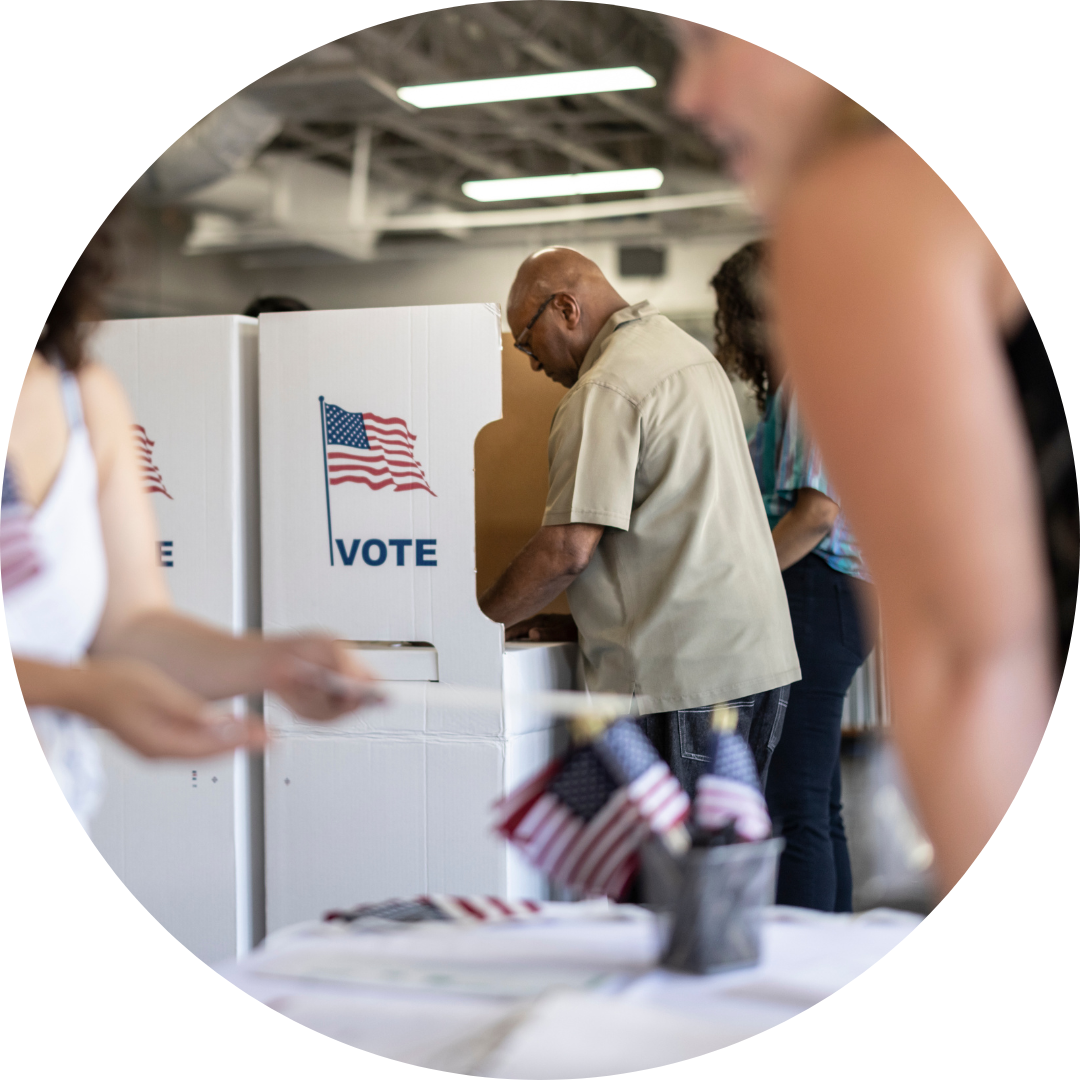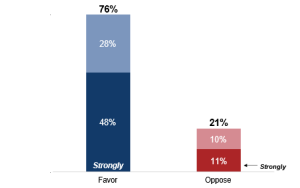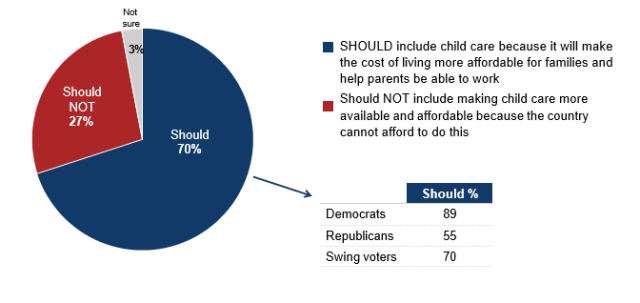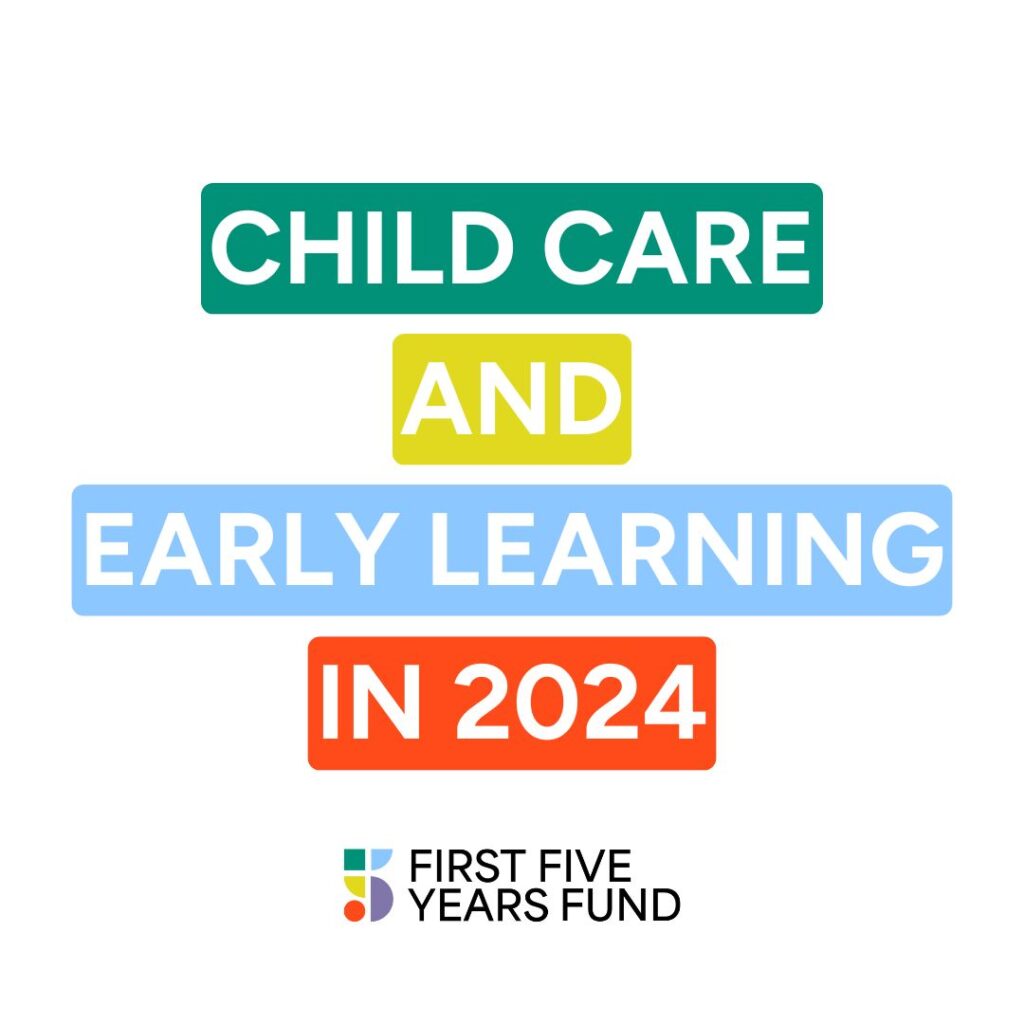Voter Support for Child Care Rivals Drug Pricing, Climate & Energy in Reconciliation

As Congressional Democrats negotiate the contents of a budget reconciliation package, new polling shows that likely voters in seven Senate battleground states have a clear, two-pronged message for Congress: the legislation should lower the costs for families; and support for lowering the cost of child care rivals prescription drug prices and climate change for inclusion in this package.
The bipartisan polling, conducted by Hart Research and New Bridge Strategy on behalf of First Five Action Fund (FFAF), surveyed likely voters in Arizona, Georgia, New Hampshire, Nevada, North Carolina, Virginia, and West Virginia.
Voters in these seven states widely support legislation that will lower costs for families, including making child care more affordable.
Lowering costs for families is a prime goal for voters right now: nine in 10 (90%) say that “the cost of living for families, including the cost of rent, groceries, and child care” is a big problem. As such, the overwhelming majority of voters favor legislation that takes specific steps to address the problem.
Legislation that would lower the cost of prescription drugs, address climate change by increasing the use of clean energy, and make child care more available and more affordable for families

Support for such legislation is significant across the electorate, including in all types of communities. Notably, it is especially high among swing voters (those who identify neither as strong partisans nor at the ideological poles), and includes large majorities of key voting groups, such as seniors, Hispanics, and suburban residents:

By more than two to one, voters say this legislation should include child care, despite the cost. Seven in 10 voters say this is the case:

Again, this sentiment crosses partisanship—89% of Democrats, 70% of swing voters, and 55% of Republicans say child care ought to be included. It is also notable that both parents (77%) and those without children (68%) say child care should be included.
Indeed, child care is in line with or exceeds the other two elements of the legislation in importance, in voters’ estimation: 81% say it is important for the legislation to lower the cost of child care, compared with 92% who say it is important to reduce the cost of prescription drugs and 66% who say it is important to address climate change.
Likely voters in these states would be unhappy with their member of Congress if child care is not included in this legislation.
Two in three voters (66%) say they would be disappointed (51%) or upset (15%) with their member of Congress if their member votes to approve legislation that excludes child care. Eight in ten Democrats (82%) feel this way, as do more than half (53%) of Republicans. Notably, 66% of swing voters say they, too, would be disappointed or upset.
Both the need for and the benefits of child care are apparent to voters.
The need:
- Sixty-one percent (61%) say the only way to meet demand for child care and ensure its affordability is for the government to take action; 36% believe cost and availability will improve on their own.
- Forty-three percent (43%) of all voters say they, a coworker, or a friend or family member has had trouble finding child care in the past several years. That includes 34% of parents who say this applies to themselves.
The benefits:
- More than three in four voters (77%) say that child care and early learning programs are a good investment of taxpayers’ money (including 43% who say it is a very good investment). Even 65% of those who say federal spending is too high believe child care to be a good investment.
- Seventy-seven percent (77%) also agree that their community would benefit from child care being more available and affordable. That includes 85% of urban residents, 76% of suburban residents, and 75% of those in small town and rural areas.
- Seventy-three percent (73%) agree that more available and affordable child care will help the economy recover from the pandemic by helping people get back to work. Parents (79%) and those without children (72%) each believe this to be the case.
State-level data is linked below:
Subscribe to FFYF First Look
Every morning, FFYF reports on the latest child care & early learning news from across the country. Subscribe and take 5 minutes to know what's happening in early childhood education.











